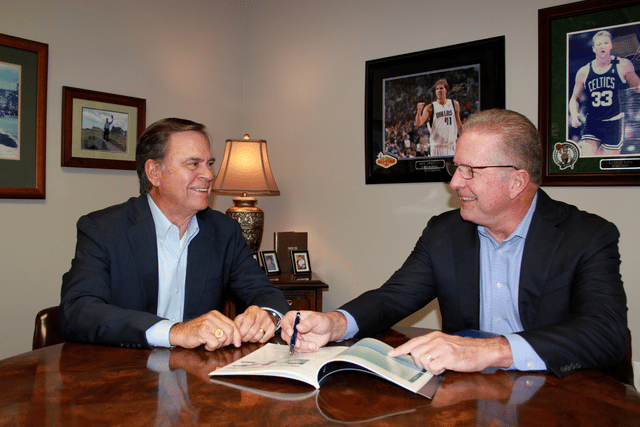I am sharing with you some of the information the Life Insurance Marketing and Research...

If you clicked on this page, congratulations. You have probably either sold a business or thinking of selling a business. These are exciting times.
A liquidity event, or exit sell, can be very difficult if not planned for in advance. These are for large sums of money typically that can have huge impacts on your life, from lifestyle to taxes, to charitable giving. It is the freedom you have worked so hard to achieve.
If you are in the process of selling a business or thinking of making the move, here are 5 tips to help you optimize the results:
Your team should consist of a tax professional, a wealth manager, a lawyer and a banker. It would be in your best interest if each of these parties are independent. They can be referrals but be careful with a firm that tries to be a jack of all trades. As they say, they end up being a master of none. Experience in each of these areas is crucial.
There are many considerations here, primarily the difference between an asset and a stock sale. An asset sale typically benefits the buyer. Instead of buying the company’s stock, the buyer is actually buying the assets of the company. There is significant benefit to the buyer because they can step up the basis on these assets, which may create additional deprecation costs, which saves the buyer taxes later. The downside to a buyer is the potential of lost contracts in an asset sale. Many contracts are not assignable. If a buyer is only buying the assets but the company remains with the seller, then some contracts may not transfer.
For the seller, an asset sale may become an issue because you can be taxed twice on the proceeds if in a C Corporation (C Corp); once on the sale of the asset and then again when you distribute the proceeds out of the C Corp. For example, if a business owns multiple vehicles. In an asset sale, those vehicles are sold but you retain the ownership of the C Corp. The C Corp first must pay any taxes on gains, if any, from the sale of your vehicles. Then when you distribute the actual funds to the owner(s), they may have to pay taxes on the distribution.
 The one exception is goodwill. The tax impact of the sale of business goodwill depends on if it can be considered personal goodwill or not. First, goodwill is the difference between the value of your company versus the fair market value of all the asset, minus its liabilities. Your brand can create goodwill. So can personal relationships, your customer service, and many other non-tangible business advantages. Either way, you should be able to treat the sale of goodwill as a capital gain in either an asset or stock sale.
The one exception is goodwill. The tax impact of the sale of business goodwill depends on if it can be considered personal goodwill or not. First, goodwill is the difference between the value of your company versus the fair market value of all the asset, minus its liabilities. Your brand can create goodwill. So can personal relationships, your customer service, and many other non-tangible business advantages. Either way, you should be able to treat the sale of goodwill as a capital gain in either an asset or stock sale.
A stock sale is the actual sale of the shares of the company’s stock. This eliminates many of the opportunities to step up the basis of the assets within the company, causing the buyer to pay more taxes ongoing. For the seller, these are typically taxed at the capital gains rate.
There are many other items to consider, and too many to discuss in full here. It is beneficial to hire your team in advance of the sale so they can help you find the structure that works best for you. Make sure your team’s leader has experience with these items. A CPA or CPWA® are two designations that have been trained in these situations.
If your business owns real estate and that is part of the sale, consider a 1031 exchange for just the property. A 1031 exchange is a transaction that may be very favorable from a tax perspective. I want to stress before going forward, paying 20% capital gains taxes isn’t necessarily the worst possible scenario. However, there are other benefits to a 1031 exchange. In a 1031 exchange, you get to restart depreciation. Depending on the depreciation schedule and how long you have owned the original property, this may be a material tax benefit. Another benefit is the “swap til you drop” philosophy in real estate. Currently, at death a property will have a stepped-up value for the beneficiaries of the estate. If you paid $500,000 for a property and it increases to $2,000,000, unless in a trust or a few other uncommon circumstances, at death the property will be carry a new cost basis of $2,000,000 for the beneficiary. You have deferred taxes on the gain until it is basically forgiven. Please note, tax laws are subject to change at any point.
The decision to perform a 1031 exchange should be a long-term decision. I would caution against one if the thought process is you will sell the second property in several years and cash out. There are no assurances your new property will have a gain in a short-period. Too many times I have seen people avoid paying capital gains taxes of 20% only to lose 30% by just not selling and paying the taxes. We never want taxes to wag the dog. A financial advisor can help you understand the long-term implications of your options and the best fit for you.
Depending on your attachment to your business and the structure, the ongoing success of the business may be very important to you. One way to make the entire process easier is to find qualified and serious buyers. A business broker may be able to help here. Selling a business is typically a time-consuming process of getting potential buyers more and more information. Ridding yourself of just the “tire kickers” will make life much easier on the seller. Likewise, ensuring the buyer is not only qualified professionally but also financially, will reduce the risk if the structure of the deal depends on future revenue or profit.
When you sell a business, especially with the idea to retire, focus is typically and primarily on the finances. Do you have enough money after the sale and no longer have income coming in? This is obviously important but so is mental health. As a Financial Advisor, we care about the financial, mental, and physical health of our clients. It is important to understand that depression within the first year is normal. This is a major change to your life. Business owners are used to having many people rely on them for their livelihood. You might go from a person who is deeply needed professionally to someone who has little to do when they wake up. The question of what is your purpose becomes extremely important.
One way to tackle this upfront is to be proactive in your planning. If retiring, retire to something versus retiring from something. Have a plan of what you will do with your time. Maybe it is working part-time at a store that sells items within your hobby. Maybe it is a lot of charity work or travel. Some use the time to spend with family. We would caution you to be careful thinking one hobby is going to cover it all. We have been told many times by our clients it is hard to golf, fish, or play tennis 5-6 days a week for an extended period.
Wherever you are in the process of selling your business, don’t forget to breath and enjoy the process. You have likely worked long and hard to get to this point. With these tips and the right team, you can feel informed and confident to move forward. Our Financial Advisors at Virtus Wealth Management have over 15 years of experience helping our clients sell their businesses in various industries.
Consider Virtus Wealth Management for your team and Connect With Us Today!